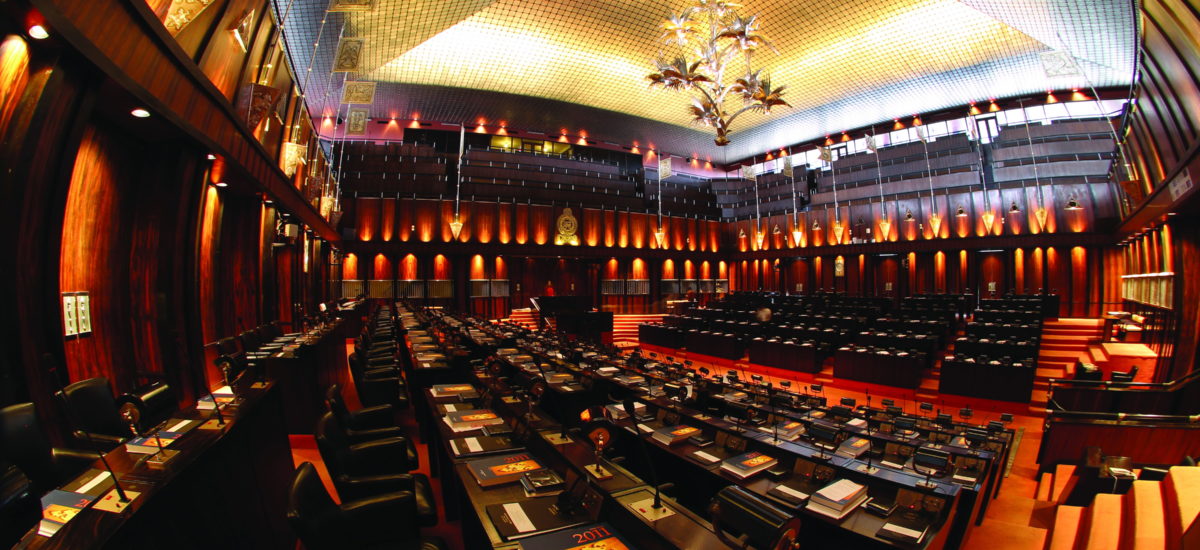October 30 marks the beginning of a Parliamentary debate around the recently released draft interim report on constitutional reform by the Steering Committee in the Constitutional Assembly.
In order to better inform the commentary around the debate, Groundviews is releasing a series of short videos deconstructing the content of the draft interim report. View the first in this series below, framed by a short list of frequently asked questions around the constitutional reform process.
Q: What is the process that has gone into drafting a constitution for Sri Lanka, thus far?
A: On March 9, 2016, the Parliament of Sri Lanka passed a resolution so that all members of Parliament could sit as a body called the Constitutional Assembly. The resolution was passed unanimously with support from all parties.
To help prepare a Draft Constitutional Proposal, the Constitutional Assembly appointed a Steering Committee to examine a number of core subject areas and six Sub-Committees to examine the specific subject areas of Fundamental Rights, Judiciary, Law and Order, Public Finance, Public Service, and Centre-Periphery Relations. The members of these Committees are all MPs.
To further help with the process, the Cabinet of Ministers appointed the Public Representations Committee for Constitutional Reforms (PRC) composed of various academics and public figures nominated by the political parties. The PRC held public consultations throughout the country seeking public submissions on a range of issues. The PRC provided two reports to the Constitutional Assembly summarising these submissions and making recommendations in May and July 2016.
The Sub-Committees then released their reports in November and December 2016, and the Steering Committee published its Interim Report in September 2017.
Q: A few weeks ago, the Interim Report of the Constitutional Assembly’s Steering Committee was released. Is this the final report?
A: No. Following debate on the Interim Report, the Steering Committee will prepare a final report accompanied by a draft proposed Constitution for Sri Lanka. This Final Report will take into account the Interim Report, the reports of the six Sub-Committees and the views of the public.
Q: Whose recommendations are included in the Interim Report?
A: The Interim Report contains the recommendations of all 21 members of the Steering Committee which represents the leadership of all political parties in Parliament. The Interim Report represents the recommendations made in consensus by its members.
It also has attached to it the individual observations of a number of political parties, which differ in various areas from the recommendations in the Interim Report itself.
Q: What next steps need to be taken after the release of this report?
A: The interim report will be debated by the Constitutional Assembly from October 30 to November 1.
The Steering Committee will then have to draft a final report, with an attached draft constitution. The Constitutional Assembly could potentially have several debates before the final report is drafted.
After the final report of the Steering Committee, the Constitutional Assembly will debate and vote on this draft constitution. If more than two-thirds of the Constitutional Assembly Members approve the draft Constitution then it will be sent to the Cabinet of Ministers. If only a simple majority of the Constitutional Assembly Members approve, then Parliament has one month to vote by two-thirds for the draft constitution and send it to the Cabinet of Ministers.
The Cabinet of Ministers will certify whether they intend the draft constitution to be passed only by a two-thirds majority or by two-thirds majority and a referendum. The Bill will then be published in the Gazette at least two weeks before it can be placed on the order paper of Parliament.
If the Cabinet of Ministers certifies that the Bill is to be passed without a referendum, any citizen can, within seven days from the date the Bill is placed on the order paper of Parliament, petition the Supreme Court to ask for a direction that it also be approved by the people at a referendum.
Parliament will then debate and vote on the draft Constitution. If a referendum is also required (either as certified by Cabinet or on the Supreme Court’s direction) it will be held after the Constitution is approved by Parliament with a two-thirds majority.
Q: What is the role that religion will play in the new Constitution, and Buddhism in particular?
A: There are two options presented in the interim report. The common part of both options is, “Sri Lanka shall give to Buddhism the foremost place and accordingly it shall be the duty of the State to protect and foster the Buddha Sasana,”
Option 1: Whilst assuring to all religions the rights granted by Article 10 and 14 (1) (e) [present Article 9]
Option 2: Whilst treating all honour and beliefs with honour and dignity, and without discrimination, and guaranteeing to all persons the fundamental rights guaranteed by the Constitution.
This is the first in a series of videos which will be posted shortly.

